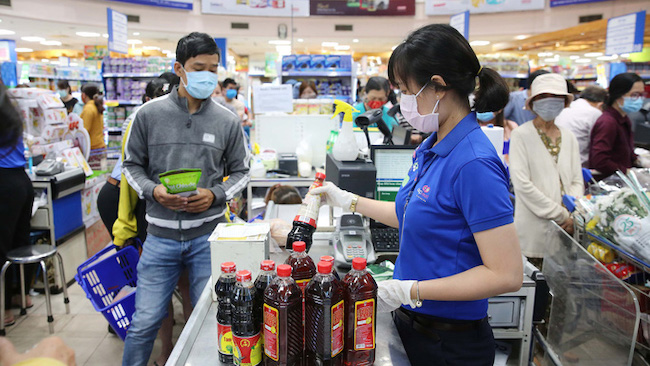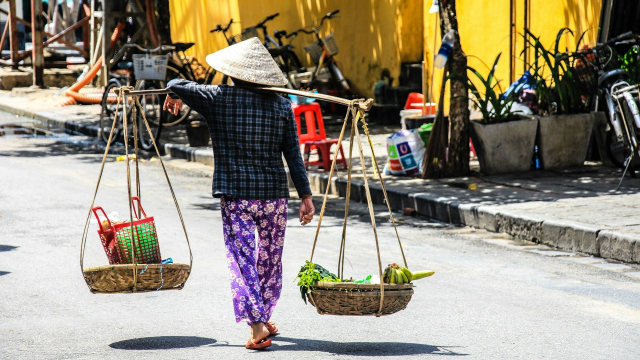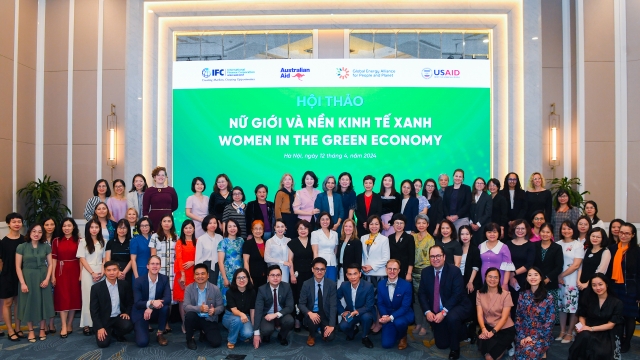National Focus
Three key issues for economic rebound after lengthy lockdown
Helping ease logistics constraints, continued testing and vaccination and encouraging labor mobility should be priorities, according to World Bank’s recommendations.

As the number of new Covid-19 infections started to fall, Hanoi and several provinces eased stringent restrictions so that mobility, industrial production index and retail sales started to recover although they remained lower than a year ago.
As seen around the world, the resumption of economic activities after a lengthy lockdown can face market friction. The reprise of production in the industrial sector and sales in the services sector will face potential supply chain and labor shortages, World Bank said in its latest update for Vietnam economy.
It recommended that Vietnam’s authorities should adopt an expansionary fiscal policy and use the various fiscal tools available to support the economic rebound.
First, easing procedural rigidities in the budget to spend the planned current and investment budgets would support aggregate demand.
Second, extending further support to workers in the formal and informal sectors and households would help fend off possible hardship as people return to employment.
Third, further financial support for firms to re-activate their businesses after a long period of closures should also be warranted, particularly those in hospitality.
World Bank revises down Vietnam's growth forecast
GDP growth rate of Vietnam contracted by 6.2 per cent year on year in the third quarter, the sharpest drop since quarterly data were compiled in the country.
Given the sharp contraction of the GDP and depending on the strength of the economic rebound in the last quarter of the year, economic growth for 2021 is now estimated to be in the 2 – 2.5 per cent range, well below World Bank’s August forecast of 4.8 per cent.
It said that in recent months, labor market conditions worsened substantially, reflecting the adverse economic impacts of the lengthy lockdown in major economic centers. The deterioration also reflects the adverse effects of the lockdown and suggests economic hardship suffered by many households.
In September, the merchandise trade balance improved as import growth slowed, while FDI commitment grew for a third month, suggesting foreign investors remain confident in the longer-term potential of Vietnam.
Inflation remained subdued amid weak domestic demand, while the Vietnamese dong experienced further nominal appreciation in the domestic official market.
Credit growth decelerated due to weakening credit demand associated with slower economic activities, but was comparable to pre-pandemic rates as banks continued to provide preferential loans and forbearance to support businesses affected by the pandemic.
The year-to-date budget balance remained in surplus despite posting another monthly deficit in September, mainly driven by a sharp fall in revenues.
In September, several additional fiscal support measures were adopted, including a VND21.3 trillion financial support package expected to come into force in October.
This package is mostly tax reduction and exemption to household businesses, SMEs with falling revenues and firms in hard-hit service sectors. Also, the authorities approved a 30 per cent reduction in land rents for firms and households affected by the current outbreak.
Two scenarios for Vietnam’s economy after the fourth Covid-19 wave
Resolution 68: A turning point in Vietnam's private sector policy
As Vietnam sets its sights on becoming a high-income country by 2045, Resolution 68 lays a crucial foundation. But turning vision into reality requires not only good policy - but also unwavering execution, mutual trust and national unity.
Vietnam plans upgrade of Gia Binh airport to dual-use international hub
Vietnam plans to upgrade Gia Binh Airport in Bac Ninh province into a dual-use international airport to support both military and civilian operations, the government said on Friday.
Lives under the scorching sun: Outdoor workers racing against climate change
Under unforgiving conditions, the outdoor workers - the backbone of urban economies - endure the harshest impacts of climate change while remaining overlooked by social safety nets. Their resilience and struggles highlight the urgent need for better protection in the face of rising temperatures and precarious livelihoods.
CEO Group chairman unveils guide to Vietnam real estate for foreigners
Doan Van Binh, Chairman of CEO Group and Vice President of the Vietnam National Real Estate Association, introduced his latest book, “Vietnam Real Estate for Foreigners,” at a launch event in Hanoi on Friday.
Women leading the charge in Vietnam's green transition
Acting for increased women’s participation and leadership in climate action, Vietnam can accelerate a transition that is more inclusive, just, and impactful.
Steam for girls: A journey of passionate and creative girls
The "Steam for girls 2024" competition provides a creative platform for Steam and an opportunity for students to connect with peers from various regions within Vietnam and internationally.









































